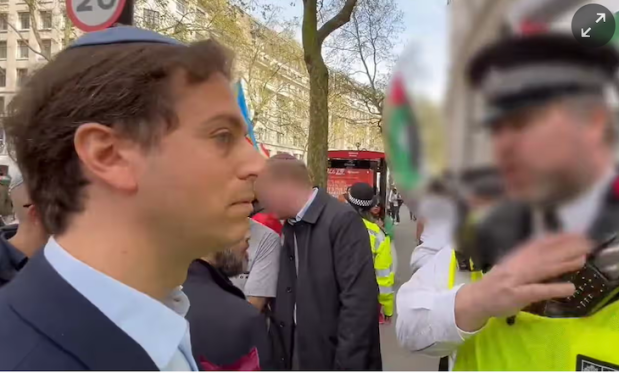Having said just days ago that they had no objection to Sue Gray’s report being published, the Met have now executed a screeching, tyre-burning U-turn and have asked that the parts of her report dealing with the most serious allegations – the only parts in which anyone has any interest – should not be published until they have completed their own investigation. No. 10 will be more than happy to comply.
Nobody can be in any doubt about the staggering, bumbling ineptitude of its presentation, but the latest Met position does actually make some sense. This is not because publication of the Gray report could possibly prejudice any criminal trial: leaving aside the exceedingly improbable possibility that charges of misconduct in public office might result from the inquiry, the Met is investigating offences that can be tried only in a Magistrates Court. There will be no jury.
The reason is that if you are conducting a criminal inquiry the last thing you want to happen is for witnesses to be told what other witnesses have said. At worst it allows people to coordinate and lie about their stories, and of course even honest witnesses can find their memories subtly affected by knowing what others have said. It is essentially the same reason why witnesses about to give evidence are not allowed to sit in the courtroom listening to the case; and why witnesses who have given their evidence are always told not to talk about it until the trial is over.
The Met were originally highly reluctant to be dragged into the whole partygate affair. Their instinct was sound. Although of course many people received fixed penalty notices or were fined during the lockdowns, the force has not engaged in retrospective investigations of lockdown breaches.
There are two groups of people who may well have hoped for police intervention.
First: the Prime Minister and his dwindling band of supporters. At this week’s PMQs he was able to blunt Keir Starmer’s attacks by the lawyerly device of declining to comment on ‘an ongoing police inquiry.’ This is a line which he can now hope to maintain for weeks or months as the inquiry drags on and ultimately fizzles out with a few fixed penalty notices to some hapless civil servants and Spads. It is quite likely that he himself will escape any personal criminal liability, a result which will then enable him to present himself as vindicated.
The second group consists of those who do not just want Boris Johnson removed from power but will not be satisfied until he stands humiliated in the dock at Westminster Magistrates Court, or better still the Old Bailey. Prominent in this group is Jolyon Maugham’s Good Law Project, which earlier this month started legal action to try to force the Met to investigate the parties. How much influence this lawfare had on the Met we do not know.
Yet all this talk of police investigations completely misses the point. Partying in Downing Street was clearly in breach of government guidance; it was also shameful and hypocritical – whether or not it was technically in breach of the lockdown rules.
And the most serious allegation against the Prime Minister is not that he broke the criminal law. It is that he lied to parliament. The police cannot investigate that allegation, and the courts cannot punish it. The duty to ensure that he takes responsibility for any parliamentary dishonesty lies with Members of Parliament, not with the police. Leaving his fate in the hands of the police is an abdication of that responsibility.
Got something to add? Join the discussion and comment below.
Get 10 issues for just $10
Subscribe to The Spectator Australia today for the next 10 magazine issues, plus full online access, for just $10.



















Comments
Don't miss out
Join the conversation with other Spectator Australia readers. Subscribe to leave a comment.
SUBSCRIBEAlready a subscriber? Log in